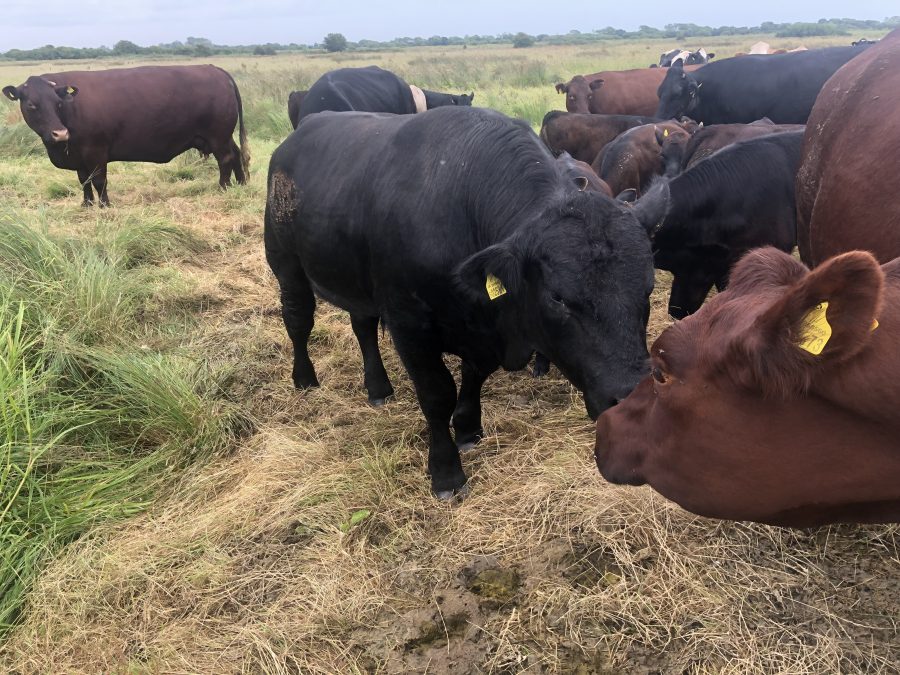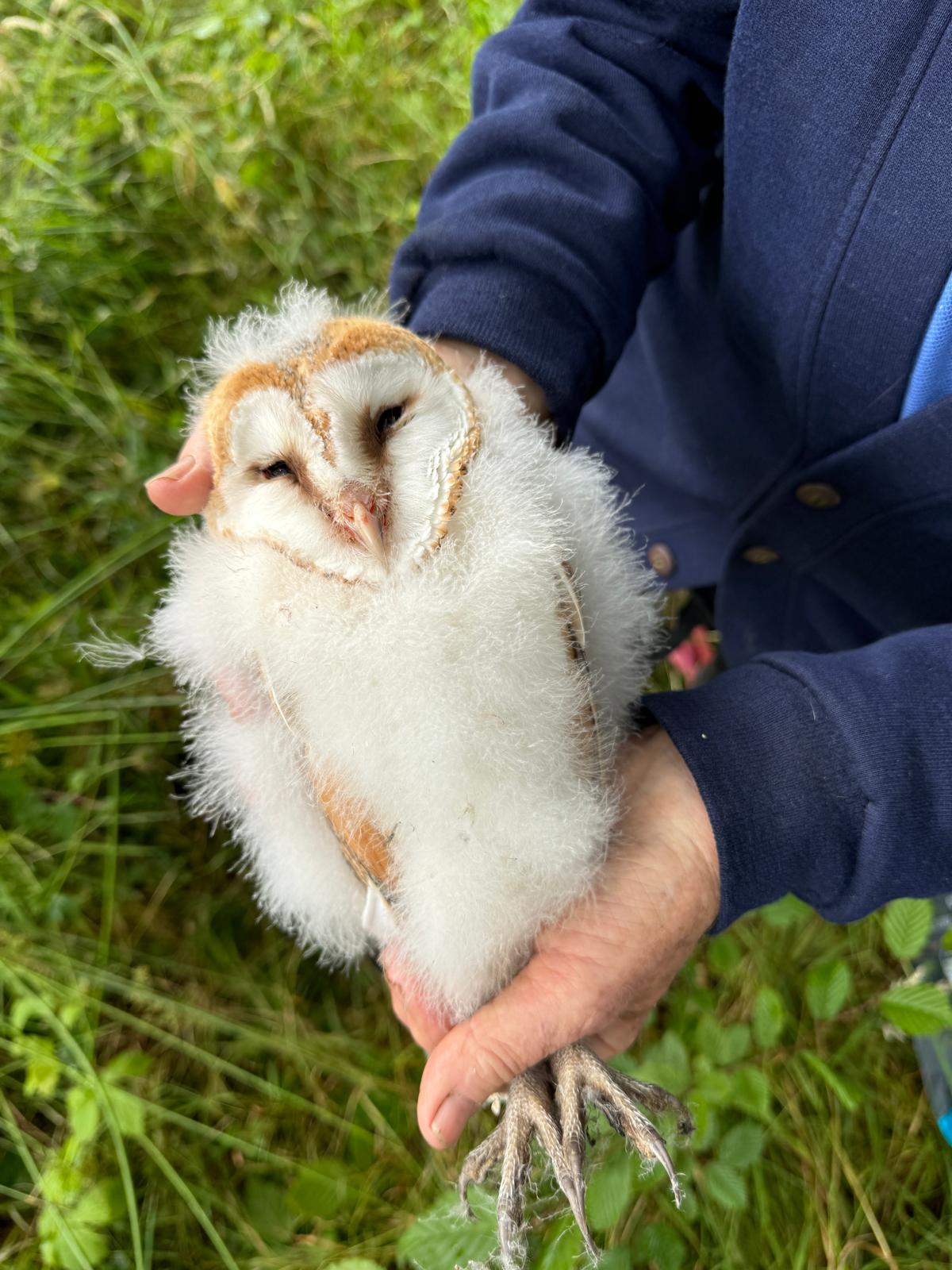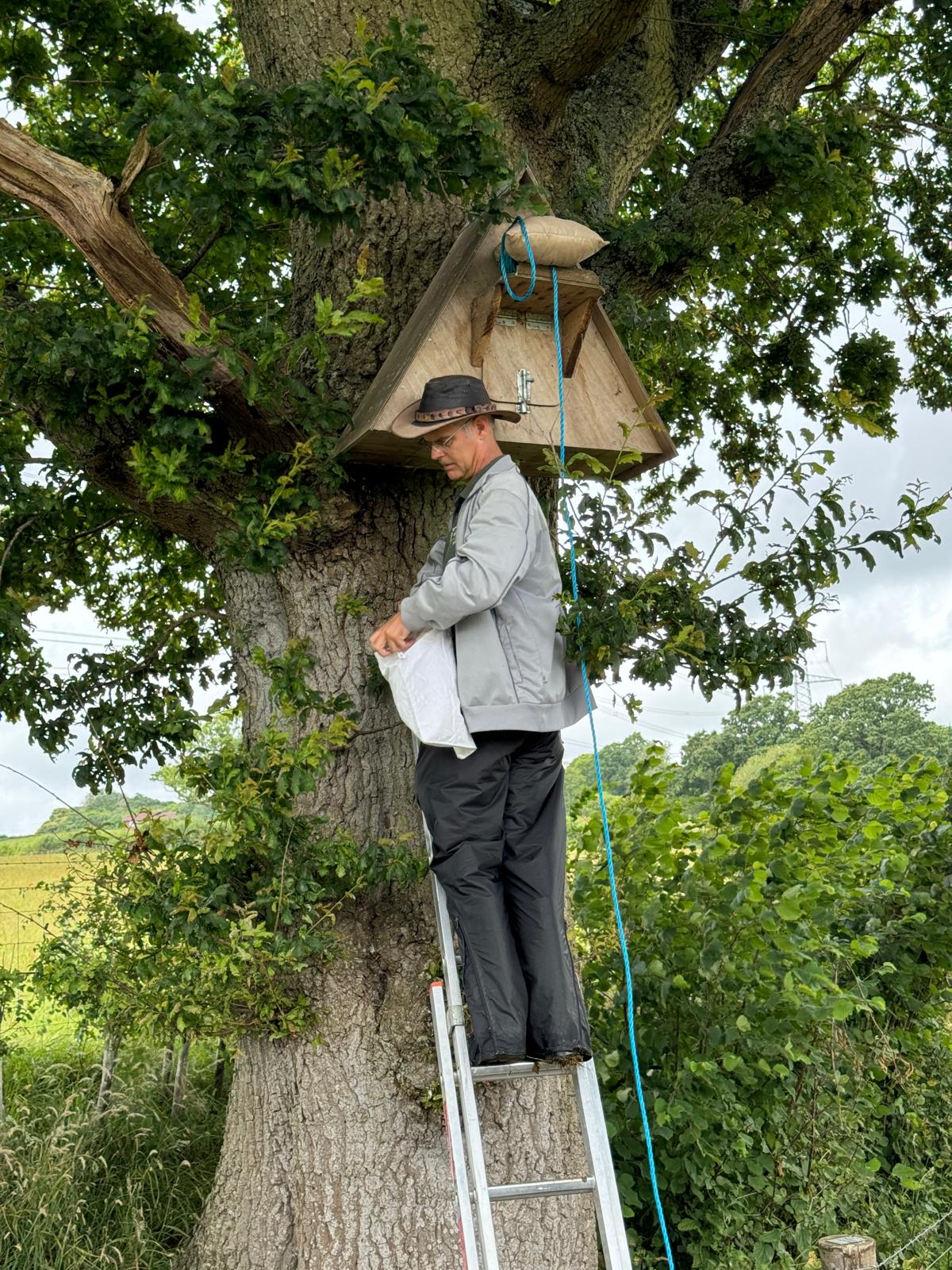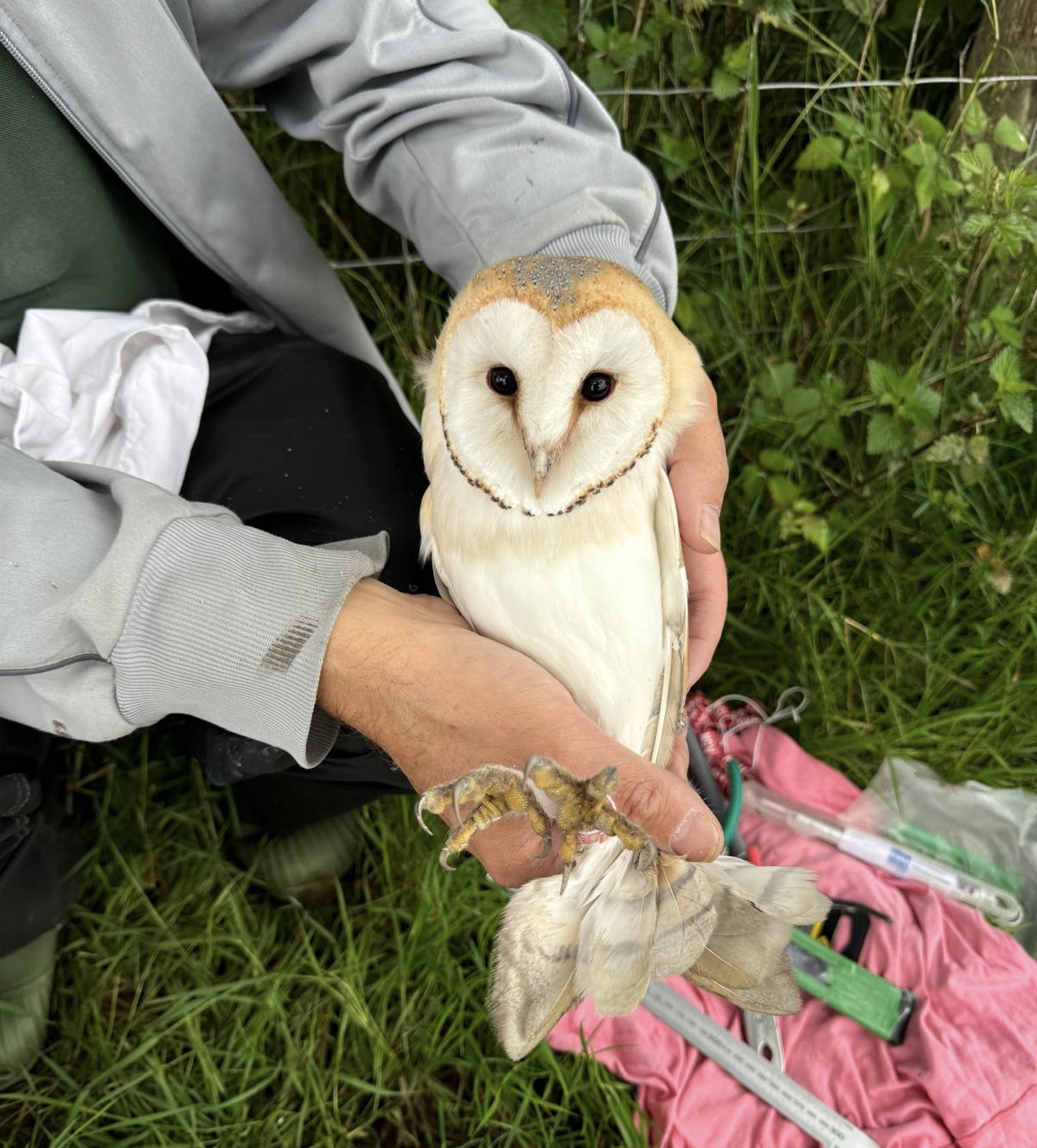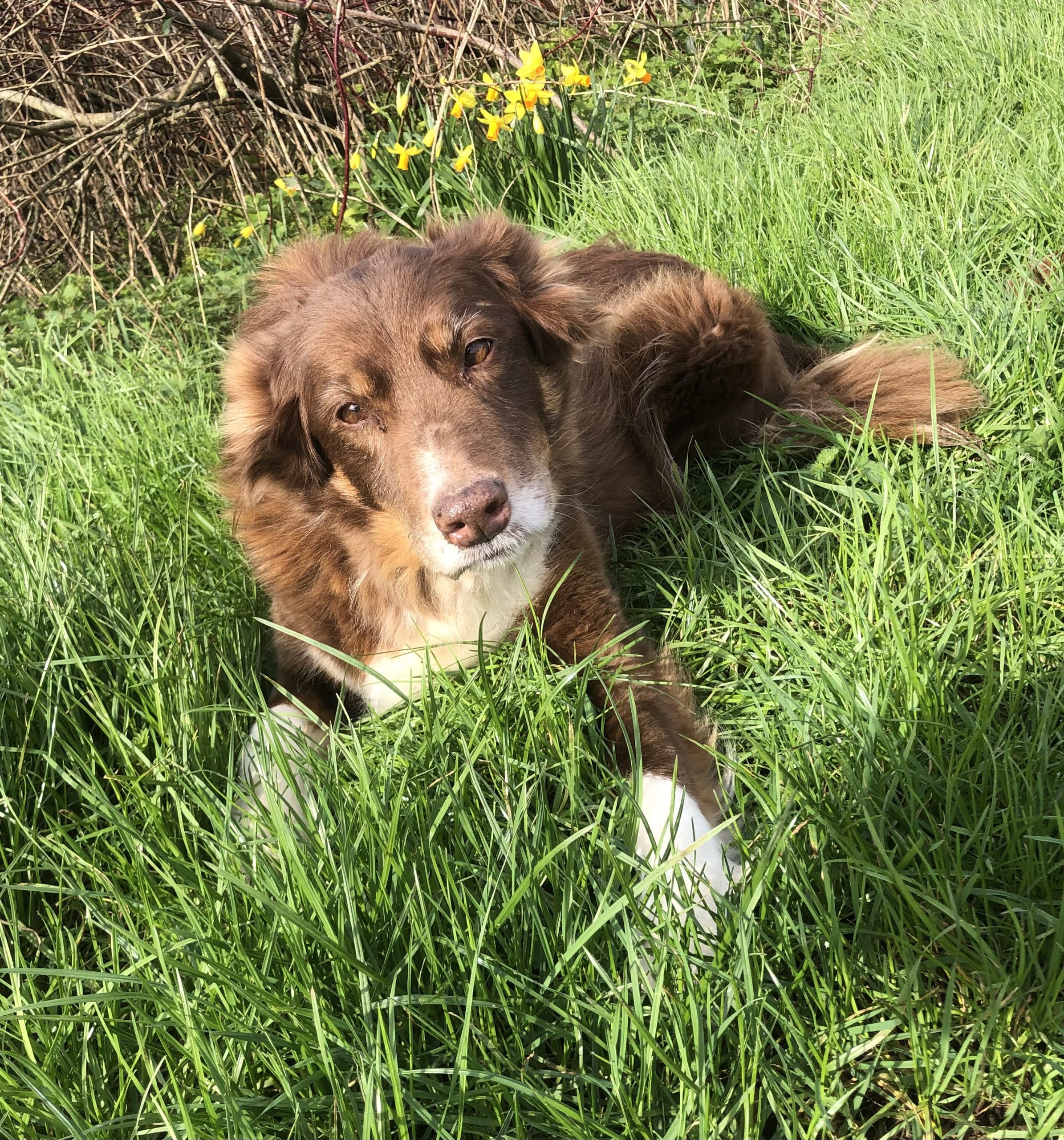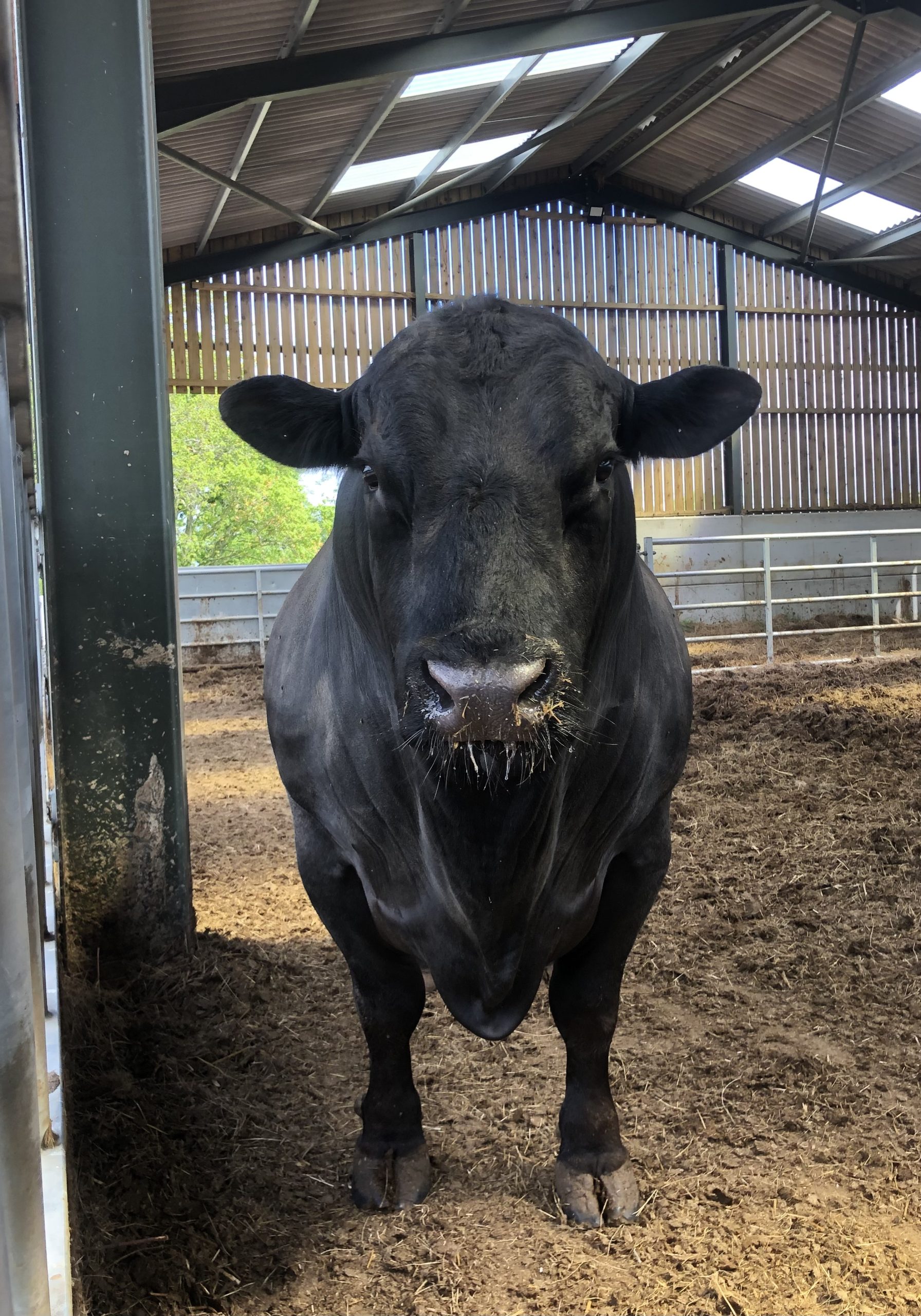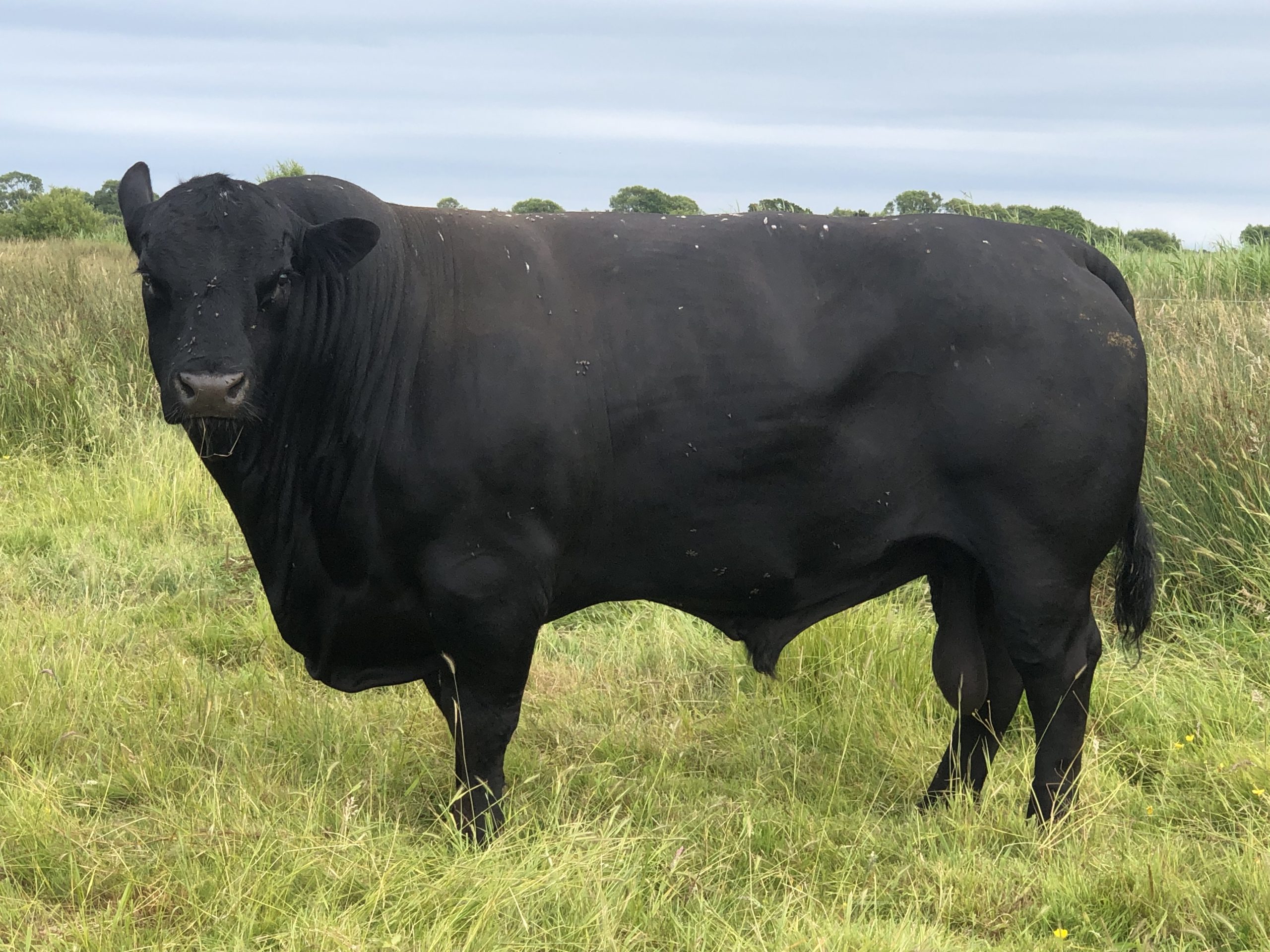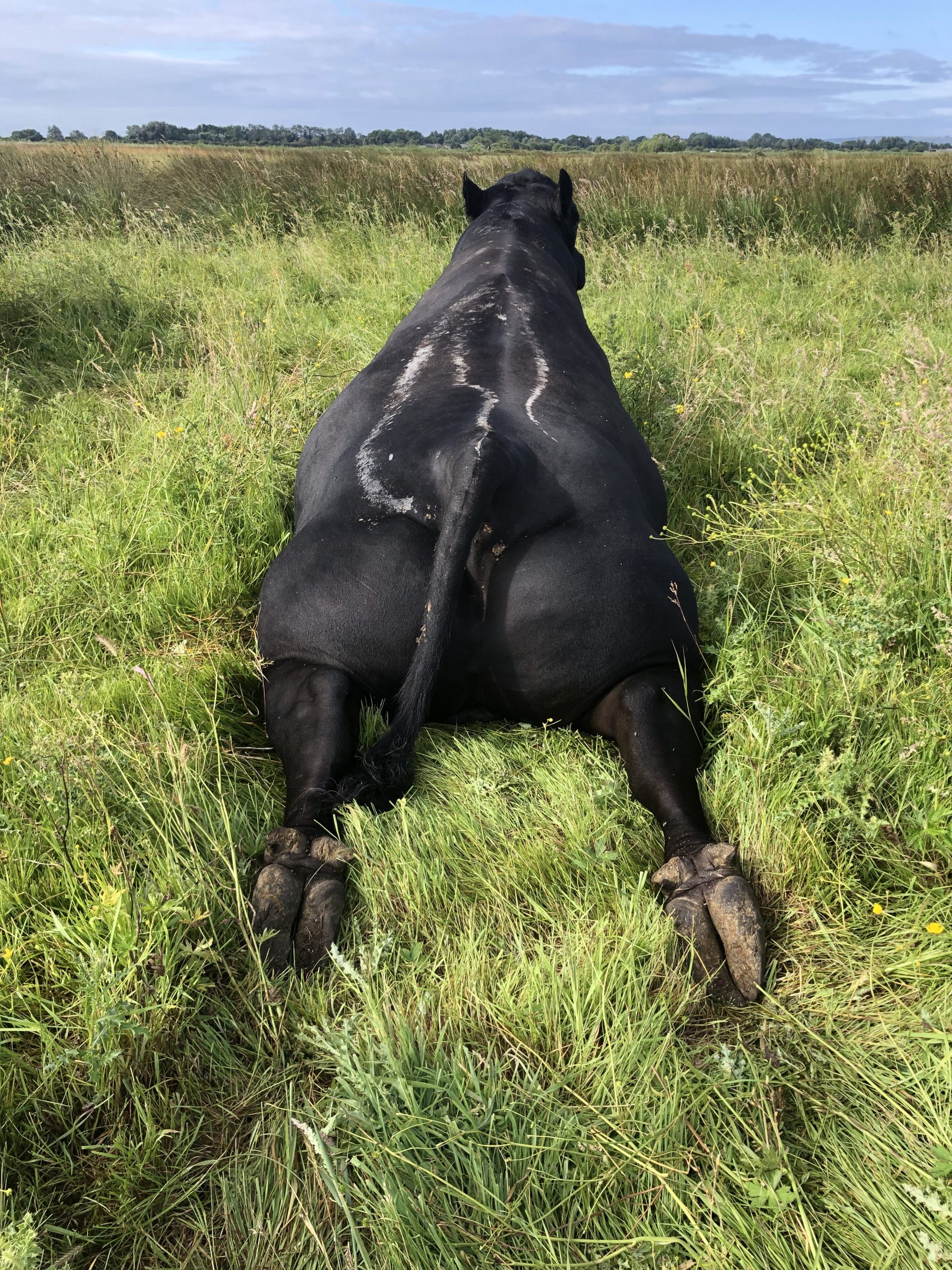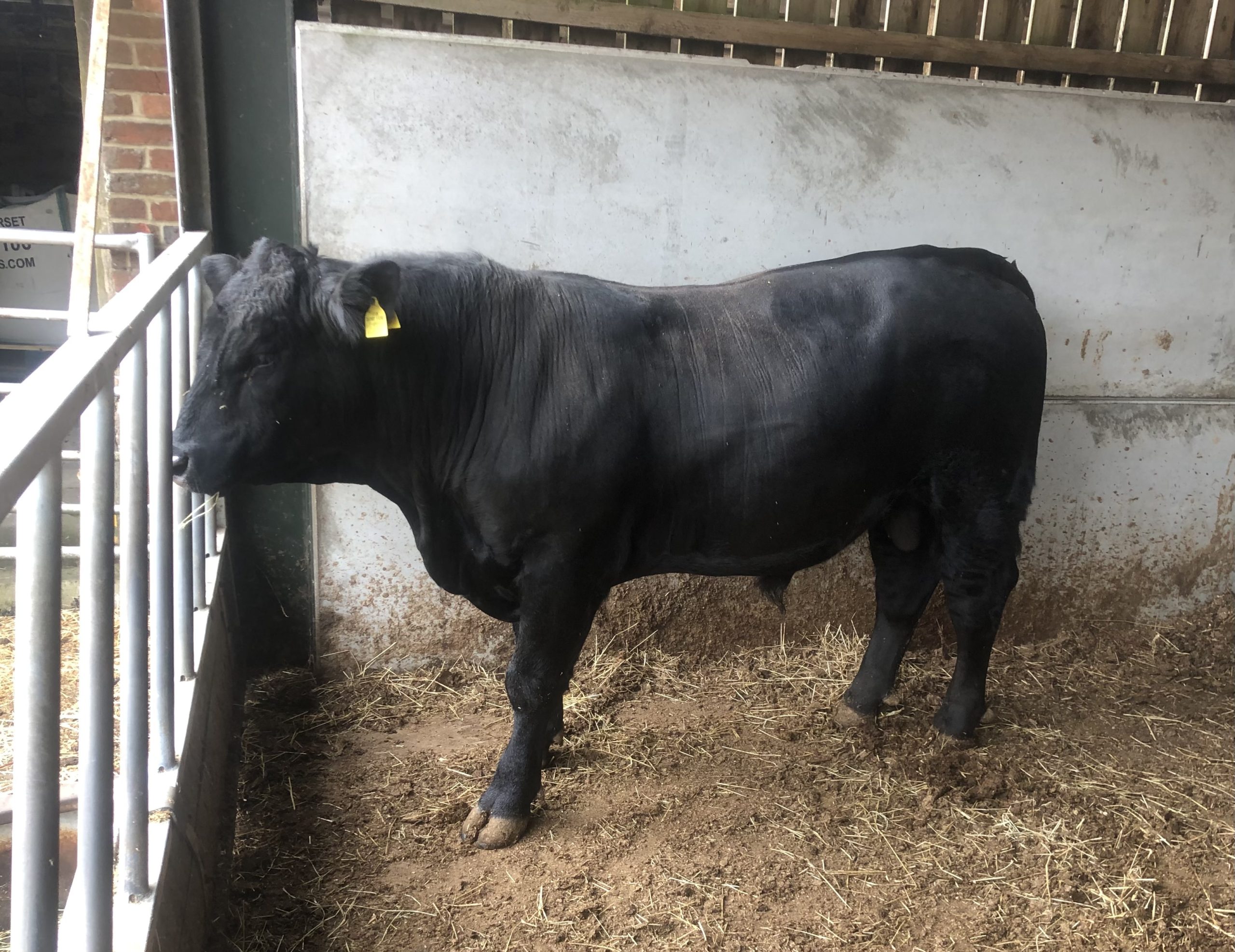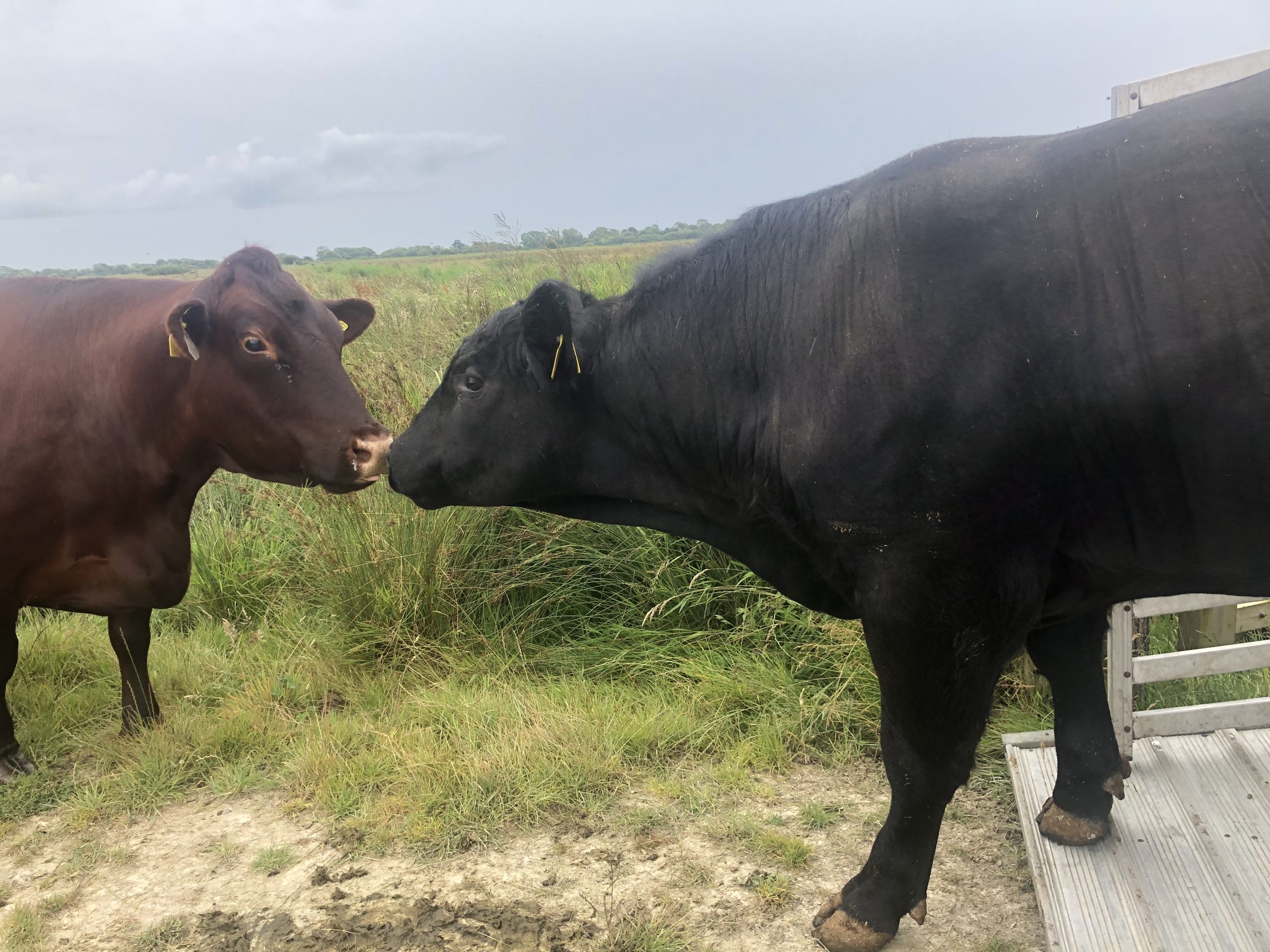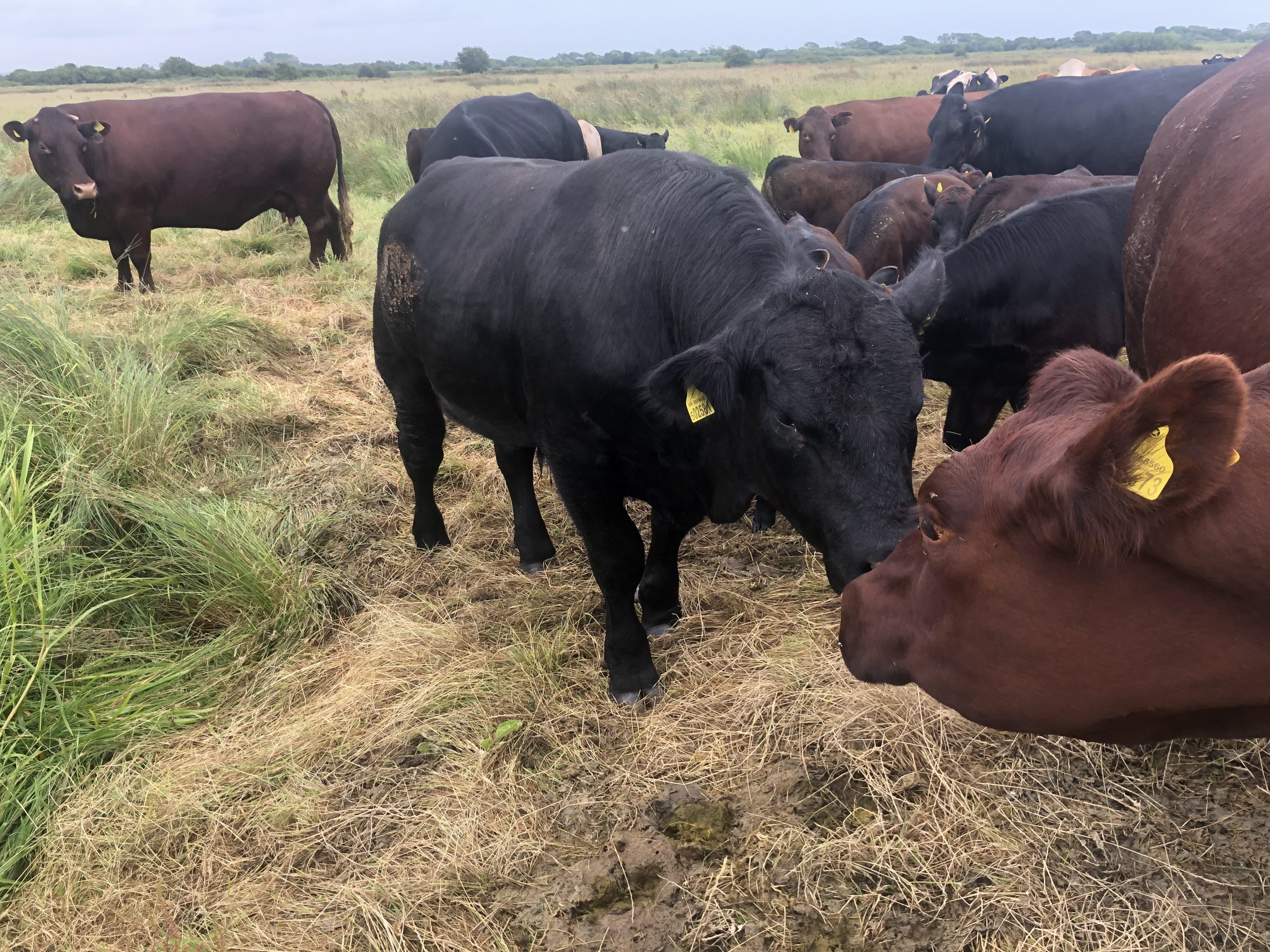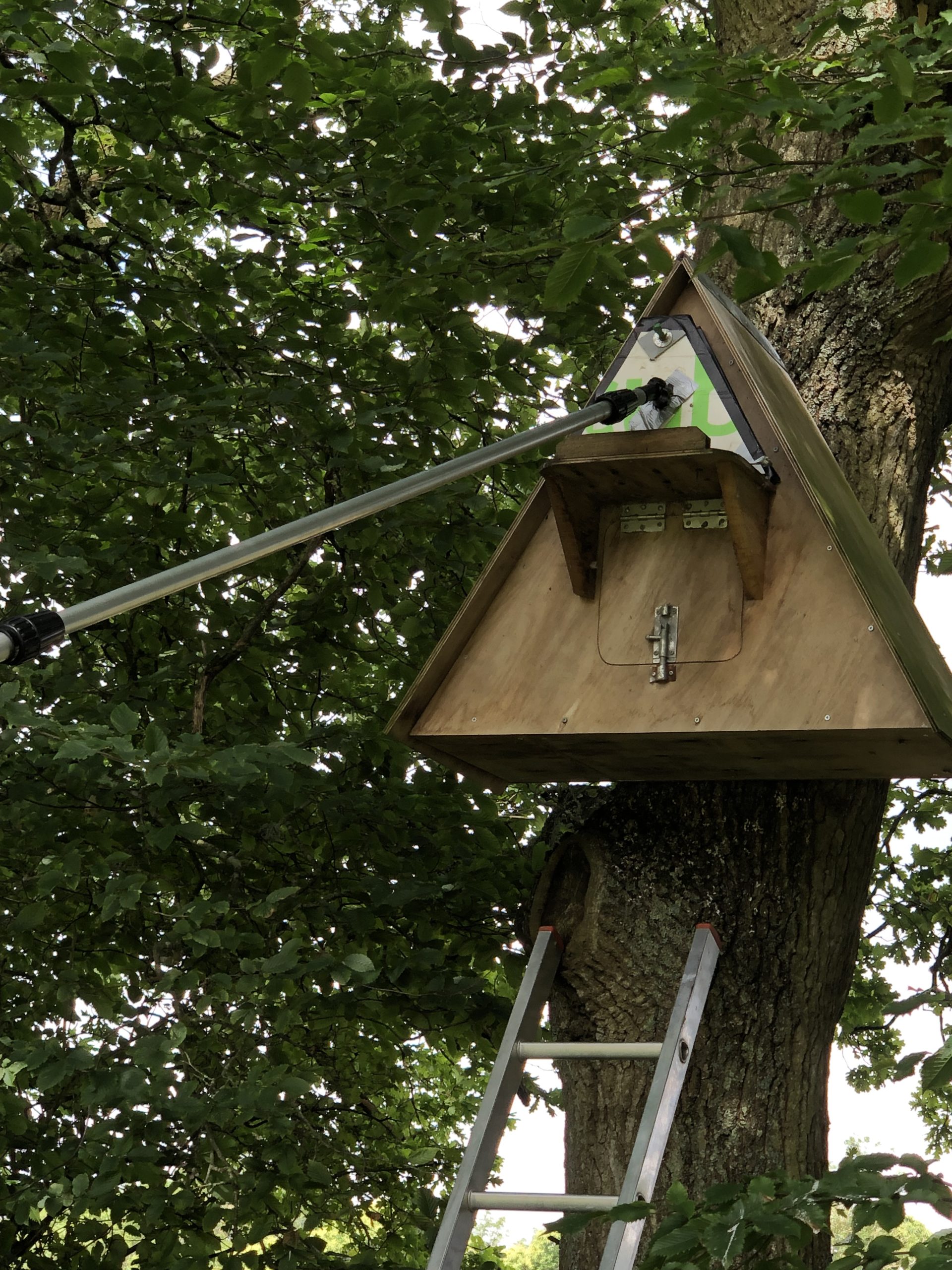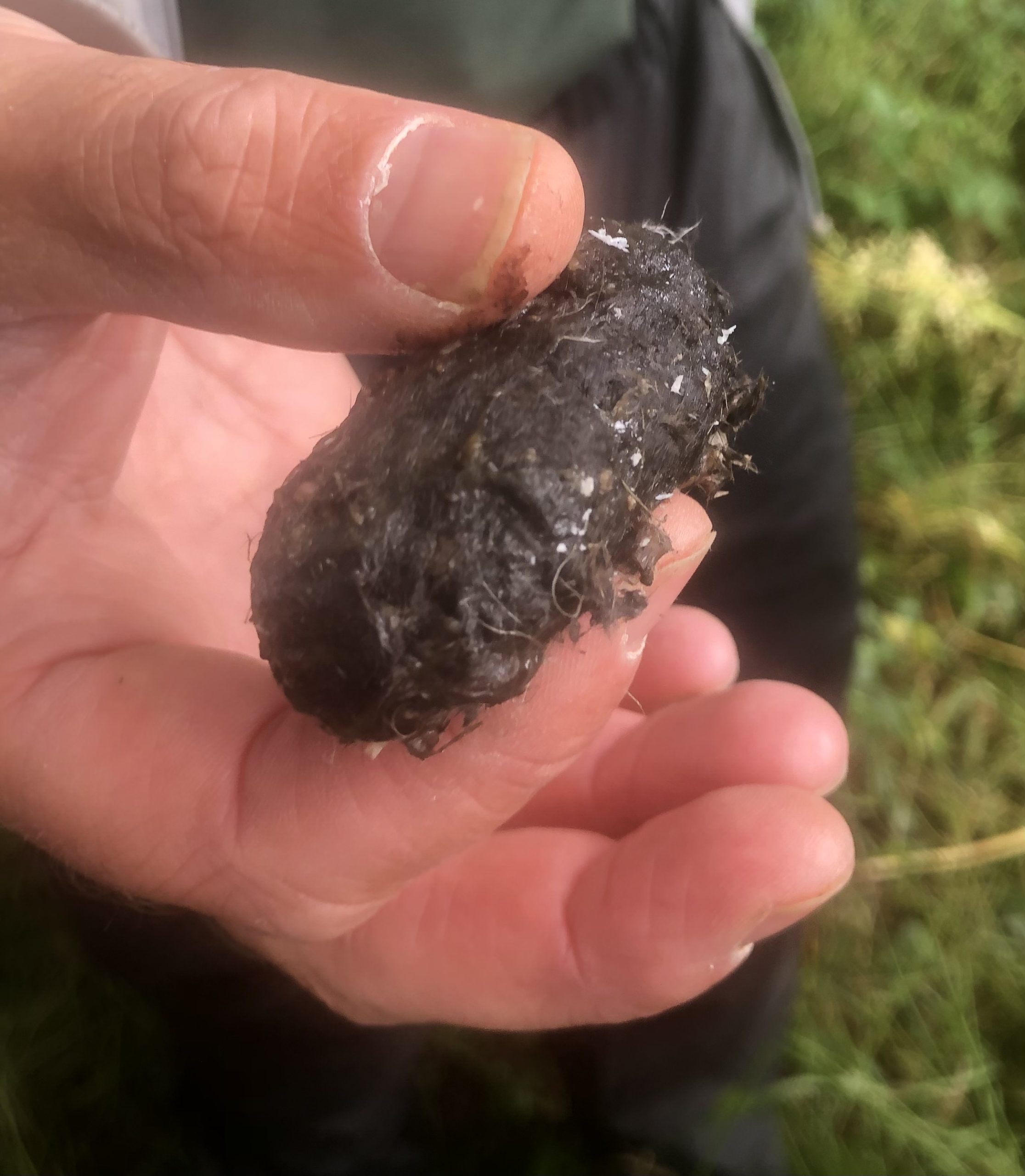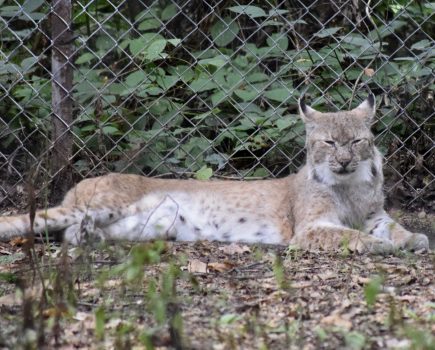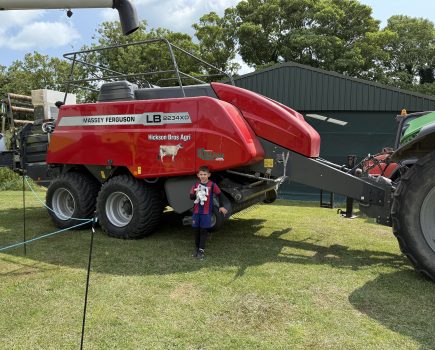Over the past month our farm life has been a rollercoaster, encompassing good, bad and sad. Top priority has been hay making; we are poised, ready for action. It’s frustrating waiting for the weather to come fine for long enough to make hay. No doubt arable farmers are also waiting in anticipation of that window of opportunity, then it’s all systems go. My other half enjoys his days spent driving tractors and tinkering with machinery.
However, by default, those cattle that have previously been ‘his cattle’ miraculously become ‘my cattle’. It’s quite a lot of extra work, alongside my shepherding responsibilities. Monitoring grazing, moving electric fencing, feeding finishing cattle, checking various groups and sorting problems. My companions, dogs and grandchildren, love it; they’re not worried about being woefully behind with paperwork or the messy house, in fact they’re positively relieved as they’re frightened of the vacuum cleaner.
Our calving dates have been disrupted, firstly because Emperor, our Aberdeen Angus bull, wasn’t cooperating over having his lost tag replaced. TB testing has taught him to be wary of crushes.
We were confident that using our new yoke locking system it would be easy. We’d simply put down the feed, lock the yokes, put on a halter to hold his head still and apply the tag. In reality, I went to apply the tag, he lifted his head and neck, broke the halter and lifted the whole section of locking yokes off the base, pulling back and forcing the locks to release him. We were astounded by Emperor’s strength as he stood staring defiantly. Checkmate.
Emperor was 14 months old when we bought him in May 2015. He grew into a fine bull; his health and temperament have been good. He’s had a high success rate of getting our cows in-calf. Although aware that we’d need to replace him before long, on the premise of ‘if a system is working why break it?’ Emperor joined our suckler cows on the marsh a little later than planned. The cows and he were delighted, and he got to work straight away.
One Sunday early evening, aiming to be back to watch England play football, I dashed down to check the herd. The cows and calves stood huddled in a group, but Emperor stood a lone figure in a distant part of the marsh. I was perplexed. I drove over to him and asked: “What’s the matter boy?” He gazed back at me, looking worried.
I gently coaxed him to take a step, he swayed as his back end gave way and he fell to the ground. With great determination he struggled to a standing position. I fetched water for him which he gratefully drank. It was distressing to see such a magnificent animal in such a predicament; he’d obviously damaged his back. We gave pain relief. I feared he’d not work again but I hoped that if he rested, he might recover.
The next morning he was lying down and looked more comfortable. The cows were standing around molesting him, so we moved them away. We gave him food and drink and he seemed content. We consulted the vet; the prognosis didn’t sound good. When we returned to check on Emperor, our hearts sank. He was dragging himself around the marsh with hind legs splayed out behind him. It was tough but we knew it was time to say goodbye to our well-respected bull. He left the premises with sparkly new tags in situ.
We needed to find a replacement, and fast, so we called Angus Stovold and arranged a bull shopping expedition. We settled on Emerald, 17 months old, who was delivered straight to the marsh a few days later. It was a fine day and the skylarks were singing overhead. Our cows were keen to welcome him; he hesitated on the tailgate, greeted a few cows then plunged straight into a dyke.
Undeterred and full of exuberance, he took off on a lap of honour before plunging through another dyke. Marsh ground was a new concept for him. Our cows were intrigued by his antics and we let them through the gate to join him. Next, he jumped a cow but mounted her from the front end, hilarious but slightly worrying. Anyway, we left him to it. In the evening we were relieved to see he’d figured it out and all was well.
We’ve recently said goodbye to Kizzy, our kelpie/collie farm dog; she was 14 and I miss her cheerful morning greeting. She patrolled the farm at night and was an efficient vermin exterminator. She was afraid of sheep. Unfortunately, she didn’t approve of Brie (sheepdog) who we needed for sheep work; we never did persuade them to become friends. Kizzy had a couple of strokes but recovered well. We thought she was indestructible, but she passed away peacefully in her sleep and later joined the rest of our old faithfuls under the old oak tree.
On a lighter note, I’m delighted to say that two out of the three owl boxes we put up last spring are being used by barn owls. Nigel said he’d seen barn owls hunting at dusk from his house and that visitors to his shepherd’s hut had also reported seeing them, so when Tim Fox, from the Sussex Barn Owl Study group, came to check the box, we were keen to watch and learn.
Firstly, the hole has to be stealthily blocked using a long pole. Using a ladder, the two owlets were carefully put into individual cloth bags. Apparently at this stage the adult birds keep their distance because the owlets would pester them for food, but they stay close by.
Each owlet’s gender, age, wing length and weight are recorded, and identification rings applied to their legs. The first owlets were about seven weeks old and covered in white fluff. The male was 450gm, the heaviest Tim had weighed this year. Tim showed us one of the sausage-shaped pellets that contains any food the owl is unable to digest, such as bones, skulls and fur.
On our home farm we were amazed to discover more owlets, probably eight to nine weeks old, with more feather and less fluff and lighter because they are starting to fly. The talons and beaks on these young birds are impressive. Apparently, owls keep their partners for life and tend to return to their same nesting box. I’m already looking forward to next year.
NB. The New Holland tractor photographed and mentioned last month is in fact powered by methane, not hydrogen as I mistakenly wrote. Apologies.
- Owlet approx six/seven weeks, fluffy, long talons
- Tim putting owlet into a cloth bag
- Eight/ nine week old owlet, more feather less fluff
- Kizzy
- Emperor in a defiant mood
- Emperor standing alone, something isn’t right
- Sadly not looking good
- Bull shopping, we chose Emerald
- Our herd are keen to say Hello
- Courting begins
- Blocking the entrance on the box
- It’s vomit, not poo
For more like this, sign up for the FREE South East Farmer e-newsletter here and receive all the latest farming news, reviews and insight straight to your inbox.

